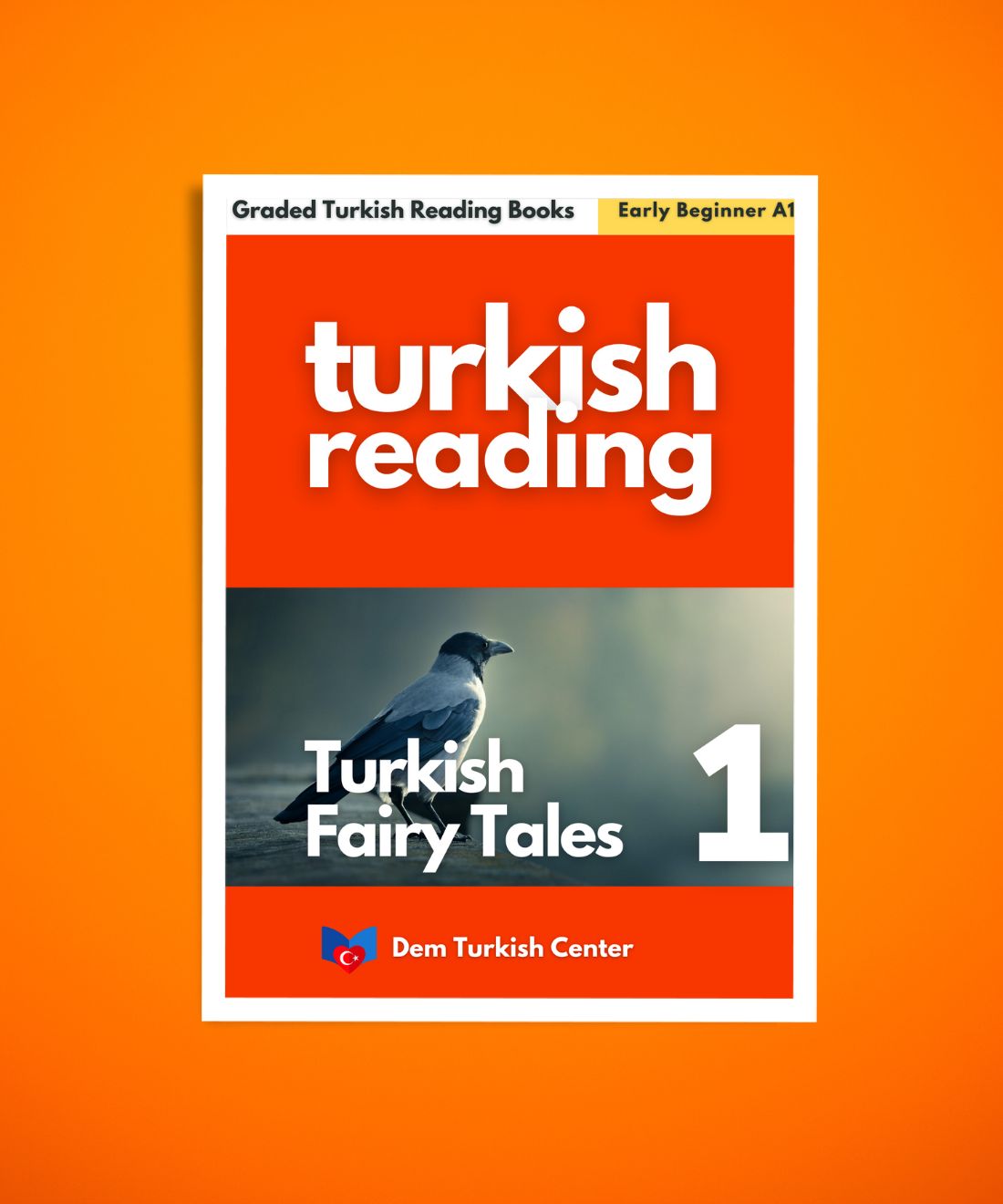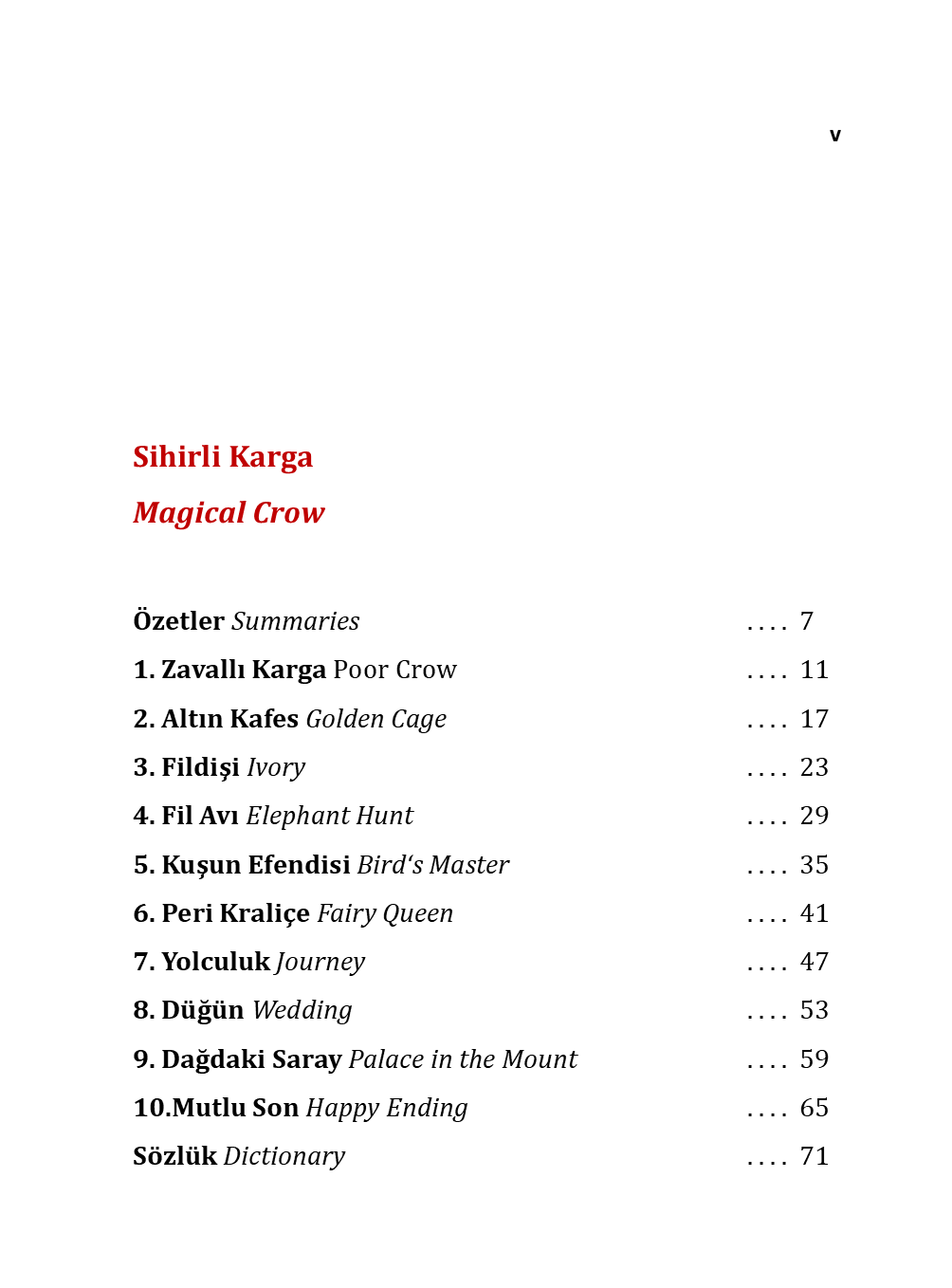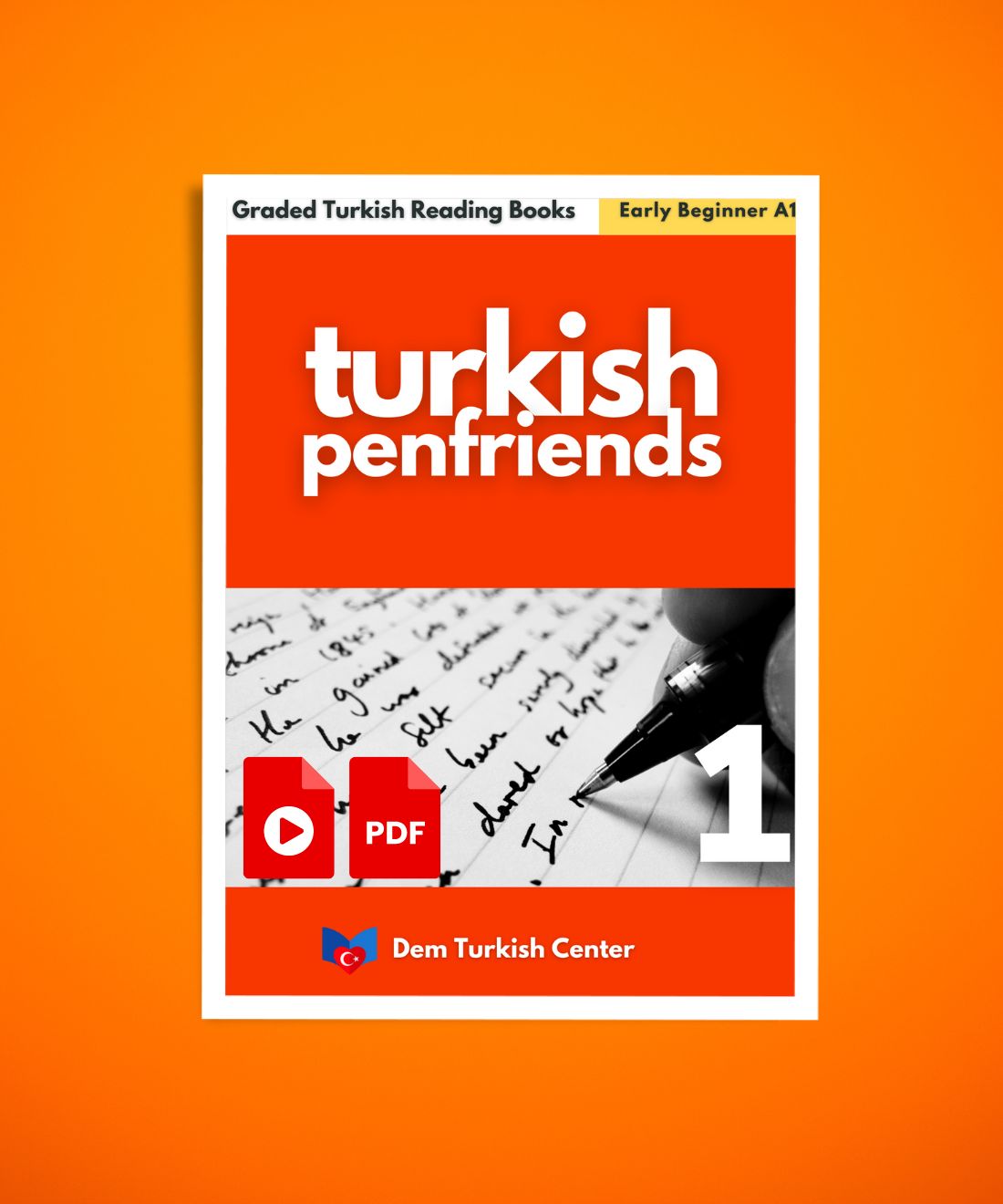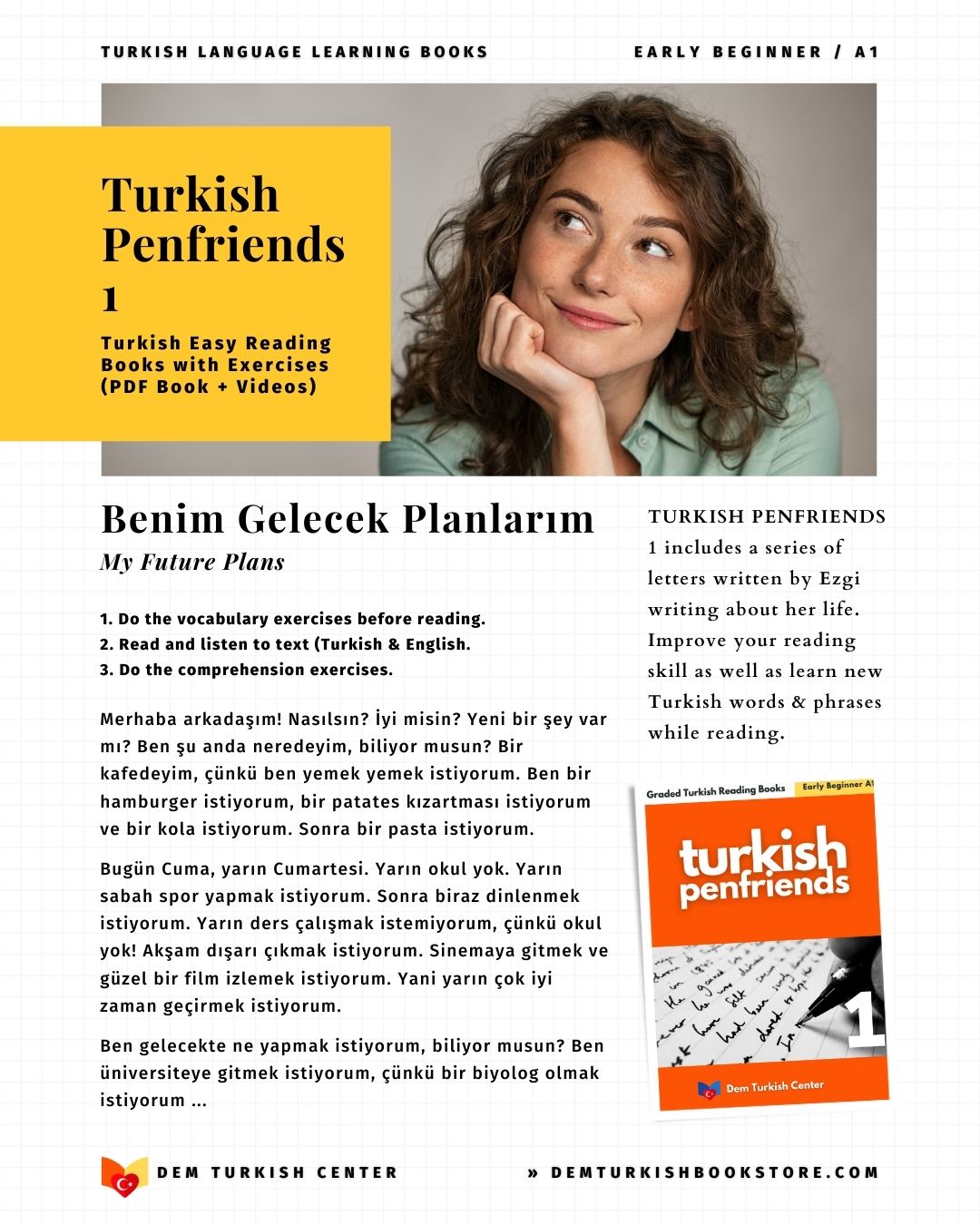
20 Best Turkish Novels Of All Time
From sweeping historical epics to poignant modern tales, Turkish literature offers a treasure trove of masterpieces that captivate readers worldwide. In this curated list, we explore the 20 best Turkish novels of all time—timeless works that blend rich cultural heritage with profound storytelling.
Discover Orhan Pamuk’s Nobel Prize-winning "My Name is Red", Sabahattin Ali’s haunting "Madonna in a Fur Coat", and Yaşar Kemal’s epic "Memed, My Hawk", alongside hidden gems that define Turkey’s literary soul. Whether you seek romance, social commentary, or magical realism, these novels promise to transport, challenge, and inspire. Dive into Turkey’s literary legacy and find your next unforgettable read!
20 BEST TURKISH NOVELS
Each selection provides key details about the book and author, giving insight into the richness of Turkish literature:

The Time Regulation Institute (Saatleri Ayarlama Enstitüsü) by Ahmet Hamdi Tanpınar, 1961
- Genre Satirical novel
- Why Read A masterpiece of Turkish modernism, blending humor and critique.
Summary of "The Time Regulation Institute"
Ahmet Hamdi Tanpınar’s satirical masterpiece "The Time Regulation Institute" follows "Hayri İrdal", an eccentric everyman whose life intertwines with a bizarre government project: an institute tasked with synchronizing all clocks in Turkey.
Through Hayri’s absurd adventures and encounters with pompous bureaucrats, mystics, and opportunists, Tanpınar critiques Turkey’s rushed Westernization, the clash between tradition and modernity, and the illusion of progress. Blending humor, philosophy, and surrealism, the novel explores timeless themes of identity, time’s fluidity, and societal chaos.
A cornerstone of Turkish literature, it’s celebrated for its wit, depth, and piercing reflection on human folly.

The Disconnected (Tutunamayanlar) by Oğuz Atay, 1971
- Genre Postmodern novel
- Why Read Often compared to Ulysses, it's a cornerstone of Turkish postmodernism.
Summary of "The Disconnected (Tutunamayanlar)"
Oğuz Atay’s groundbreaking novel "The Disconnected" follows "Turgut Özben", an engineer who spirals into an existential crisis after his friend Selim’s suicide.
Through fragmented narratives, diaries, and dark humor, Turgut dissects Selim’s life—and his own—exposing their alienation in a society obsessed with conformity. Atay’s modernist style, blending satire, stream-of-consciousness, and metafiction, critiques Turkey’s cultural upheavals and the loneliness of intellectual outsiders.
A cult classic, the novel’s raw exploration of identity, failure, and societal absurdity resonates deeply, cementing Atay as a literary rebel.
Download Turkish Reading Practice Course 1 A1!

Madonna In A Fur Coat (Kürk Mantolu Madonna) by Sabahattin Ali, 1943
- Genre Romantic novel
- Why Read A timeless tale of unfulfilled love that resonates globally.
Summary of "Madonna in a Fur Coat"
Sabahattin Ali’s timeless novel follows "Raif Efendi", a meek Turkish clerk who recounts his youthful love affair with "Maria Puder", a bold German artist, in 1920s Berlin.
Their intense, unconventional bond—captured through Raif’s poignant memories—reveals themes of vulnerability, cultural clash, and unfulfilled desire. Maria’s portrait in a fur coat becomes a symbol of passion and loss. Decades later, Raif’s quiet despair underscores the novel’s meditation on loneliness and societal constraints.
Celebrated for its emotional depth and lyrical prose, this cult classic explores love’s transformative power and the pain of unrealized dreams.

A Mind At Peace (Huzur) by Ahmet Hamdi Tanpınar, 1949
- Genre Philosophical novel
- Why Read Captures the spirit of Istanbul in poetic prose.
Summary of "A Mind at Peace (Huzur)"
Set in post-WWII Istanbul, "A Mind at Peace" follows "Mümtaz", a melancholic intellectual, as he grapples with love, existential dread, and Turkey’s cultural identity.
Through his relationships—especially with his cousin "Nuran", a divorced beauty embodying Ottoman elegance—Tanpınar weaves a poetic meditation on time, memory, and the clash between tradition and modernity. The novel’s lush prose and philosophical depth capture Istanbul’s soul, blending personal turmoil with national transformation.
A masterpiece of Turkish literature, it explores the elusive search for inner peace amid chaos.
Download Turkish Reading Practice Course 2 A2!

Memed, My Hawk (İnce Memed) by Yaşar Kemal, 1955
- Genre Epic novel
- Why Read One of Turkey’s best-known works internationally, with themes of resistance and human dignity.
Summary of "Memed, My Hawk (İnce Memed)"
Yaşar Kemal’s epic novel follows "İnce Memed", a defiant peasant who rebels against the oppressive landlord "Abdi Ağa" in rural Anatolia. After escaping tyranny, Memed becomes a legendary outlaw, fighting for justice and the freedom of his village.
Blending folklore and social realism, Kemal paints a vivid portrait of resistance, inequality, and the resilience of the human spirit. The novel’s lyrical prose and heroic narrative celebrate Anatolia’s landscape and culture, cementing its status as a cornerstone of Turkish literature.
A timeless tale of rebellion and hope.

Cevdet Bey and His Sons (Cevdet Bey ve Oğulları) by Orhan Pamuk, 1982
- Genre Family saga
- Why Read A reflection on modern Turkey by a Nobel laureate.
Summary of "Cevdet Bey and His Sons"
Orhan Pamuk’s debut novel traces three generations of the "Işık family" in Istanbul, from the ambitious merchant "Cevdet Bey" in the early 20th century to his conflicted grandsons in the 1970s.
Through their personal struggles—business ventures, artistic aspirations, and political dilemmas—Pamuk explores Turkey’s tumultuous modernization, the tension between Western ideals and Ottoman heritage, and the search for identity. Rich in historical detail and psychological depth, the novel mirrors the nation’s transformation, blending family saga with social critique.
A poignant debut that foreshadows Pamuk’s Nobel-winning brilliance.
Download Turkish Reading Practice Course 3 PI (Pre-intermediate)!

The White Castle (Beyaz Kale) by Orhan Pamuk, 1985
- Genre Historical fiction
- Why Read A philosophical and metafictional gem.
Summary of "The White Castle"
Set in 17th-century Istanbul, "The White Castle" explores the enigmatic relationship between an "Italian scholar" captured by Ottoman forces and his doppelgänger, "Hoja", a Turkish polymath.
As the two men exchange knowledge, identities blur, culminating in a psychological duel that questions selfhood, cultural clash, and the nature of mastery. Pamuk’s postmodern fable, woven with historical detail and existential intrigue, challenges East-West dichotomies while reflecting on destiny and human connection.
A slim yet profound novel that foreshadows the Nobel laureate’s signature themes of duality and illusion.

On Fertile Lands (Bereketli Topraklar Üzerinde) by Orhan Kemal, 1954
- Genre Social realist novel
- Why Read A vivid portrayal of rural Turkey’s harsh realities.
Summary of "On Fertile Lands (Bereketli Topraklar Üzerinde)"
Orhan Kemal’s gritty realist novel exposes the harsh lives of "seasonal laborers" in Turkey’s Çukurova region, where three friends—"Ali, Yusuf, and Köse Hasan"—migrate for work, only to face exploitation, poverty, and despair.
Through vivid characters and unflinching prose, Kemal critiques systemic injustice, capitalist greed, and the human cost of industrialization. The novel’s raw portrayal of resilience and solidarity among the oppressed cements its status as a cornerstone of **social realist literature** in Turkey.
A powerful indictment of inequality, yet infused with empathy for the downtrodden.
Download Turkish Reading Practice Course 4 B1!

The Idle Man (Aylak Adam) by Yusuf Atılgan, 1959
- Genre Existential novel
- Why Read Often likened to Camus’ *The Stranger*, it’s a classic of Turkish existentialism.
Summary of "The Idle Man (Aylak Adam)
Yusuf Atılgan’s modernist classic follows "C.", a disaffected intellectual who drifts through 1950s Istanbul, rejecting societal norms and romantic entanglements.
Alienated and introspective, he wanders the city’s streets, bars, and fleeting relationships, embodying existential ennui. Through fragmented narratives and psychological depth, Atılgan critiques urban alienation, the emptiness of bourgeois life, and the search for meaning in a conformist world.
A landmark of Turkish literature, the novel’s spare prose and antihero resonate with Camus and Sartre, capturing the universal angst of the "idle" outsider.

A Wedding Night (Bir Düğün Gecesi) by Adalet Ağaoğlu, 1979
- Genre Psychological novel
- Why Read A nuanced critique of social and political issues.
Summary of "A Wedding Night (Bir Düğün Gecesi)
Adalet Ağaoğlu’s sharp social critique unfolds during a single night at an Ankara wedding, where bourgeois guests reveal their hypocrisies through fragmented monologues and dark humor.
As tensions simmer between generations, the novel exposes Turkey’s political turmoil post-1971 coup, the clash of modernity and tradition, and the emptiness of elite privilege. Ağaoğlu’s innovative narrative structure—blending stream-of-consciousness and satire—mirrors societal disintegration.
A cornerstone of Turkish modernism, the novel dissects power, gender, and existential despair with razor-sharp precision.

The Lazy Class (Hababam Sınıfı) by Rıfat Ilgaz, 1957
- Genre Satire
- Why Read A nostalgic and lighthearted critique of the Turkish education system.
Summary of "The Lazy Class (Hababam Sınıfı)
Rıfat Ilgaz’s beloved comic novel follows the mischievous students of "Hababam Sınıfı (The Lazy Class)"", a chaotic high school classroom where pranks and rebellion reign supreme.
Led by the unruly "İnek Şaban" and the cunning "Güdük Necmi", the boys outwit their tyrannical principal "Kel Mahmut" with hilarious antics, satirizing Turkey’s rigid education system. Beneath the laughter, Ilgaz critiques authoritarianism and societal hypocrisy.
Adapted into iconic films, this cult classic celebrates youthful defiance and camaraderie, cementing its place as a timeless symbol of resistance through humor.

The Clown and His Daughter (Sinekli Bakkal) by Halide Edib Adıvar, 1935
- Genre Historical novel
- Why Read A classic that bridges tradition and modernity.
Summary of "The Clown and His Daughter (Sinekli Bakkal)"
Set in late Ottoman Istanbul, this historical novel follows "Rabia", the gifted daughter of a street performer, as she navigates love, art, and political upheaval.
Trained in classical music by her grandfather, Rabia’s life intertwines with "Peregrini", an Italian musician, reflecting East-West tensions. Adıvar weaves themes of cultural identity, gender roles, and Sufi spirituality against a backdrop of societal change.
Celebrated for its rich portrayal of neighborhood life and strong female protagonist, the novel blends realism with lyrical depth, offering a poignant exploration of tradition and modernity.

Dangerous Games (Tehlikeli Oyunlar) by Oğuz Atay, 1973
- Genre Experimental fiction
- Why Read A darkly comic and deeply introspective work.
Summary of "Dangerous Games (Tehlikeli Oyunlar)"
Oğuz Atay’s surreal and darkly comic novel follows "Hikmet Benol", an alienated intellectual who spirals into madness while writing a chaotic, self-referential "great work."
Through fragmented narratives, parodies, and existential musings, Hikmet’s mind becomes a battleground of societal critiques, literary clichés, and personal despair. Atay dismantles Turkish modernity’s contradictions with razor-sharp satire, blending metafiction and psychological depth.
A challenging yet brilliant exploration of isolation, artistic failure, and the absurdity of human pretensions.

Motherland Hotel (Anayurt Oteli) by Yusuf Atılgan, 1973
- Genre Psychological novel
- Why Read A minimalist yet powerful exploration of loneliness.
Summary of *Motherland Hotel (Anayurt Oteli)
This existential masterpiece follows "Zebercet", a reclusive hotel clerk in a sleepy Anatolian town, whose monotonous life unravels after a mysterious woman stays overnight and vanishes.
Obsessed with her memory, Zebercet descends into madness, his isolation mirroring Turkey’s societal alienation in the 1970s. Atılgan’s minimalist prose and psychological depth evoke Kafka, painting a haunting portrait of longing, repression, and existential futility. The decaying hotel becomes a metaphor for a nation caught between tradition and modernity.
A landmark of Turkish literature, bleak yet mesmerizing.

Snow (Kar) by Orhan Pamuk, 2002
- Genre Political fiction
- Why Read A gripping tale that explores faith, identity, and politics.
Summary of "Snow (Kar)"
Orhan Pamuk’s politically charged novel follows "Ka", a exiled Turkish poet who returns to the remote city of Kars to investigate a wave of suicides among young Muslim women.
As a snowstorm isolates the town, Ka becomes entangled in its ideological clashes—between secularism and Islamism, art and politics—while reigniting a forbidden love with his childhood friend "İpek". Blending mystery, romance, and satire, Pamuk explores identity, censorship, and the fragility of democracy.
A haunting meditation on Turkey’s cultural divides, *Snow* masterfully intertwines personal and national turmoil.

The Devil Within (İçimizdeki Şeytan) by Sabahattin Ali, 1940
- Genre Psychological novel
- Why Read A sharp critique of societal hypocrisies.
Summary of "The Devil Within (İçimizdeki Şeytan)"
Sabahattin Ali’s gripping novel follows "Ömer", a cynical journalist, and "Macide", a vulnerable young woman, as their turbulent relationship exposes the moral decay in 1940s Istanbul.
Through Ömer’s manipulative behavior and Macide’s tragic descent, Ali critiques societal hypocrisy, toxic masculinity, and the "inner devils" of selfishness and cruelty. The novel’s psychological depth and unflinching realism highlight the destructive power of ego and societal neglect.
A dark yet compelling exploration of human frailty and redemption, cementing Ali’s legacy as a master storyteller.

Heartache (Kalp Ağrısı) by Halide Edib Adıvar, 1924
- Genre Romantic drama
- Why Read Highlights the plight and resilience of women.
Summary of "Heartache (Kalp Ağrısı)"
Set during Turkey’s War of Independence, "Heartache" follows "Nazmiye", a patriotic teacher, and "Cemal", an idealistic officer, as their love story unfolds amid national turmoil.
Adıvar intertwines personal and political struggles, portraying the sacrifices of women and soldiers in the fight for freedom. Through vivid characters and emotional depth, the novel explores themes of duty, resilience, and the cost of war on human hearts.
A poignant blend of romance and historical drama, it reflects Adıvar’s own activism and Turkey’s transformative era.

The Revenge Of The Snakes (Yılanların Öcü) by Fakir Baykurt, 1954
- Genre Social realist novel
- Why Read A poignant depiction of rural struggle.
Summary of "The Revenge of the Snakes (Yılanların Öcü)"
Fakir Baykurt’s seminal work exposes rural oppression through the story of "Kara Bayram", a peasant who rebels against corrupt village leaders after they deny him land.
When Bayram’s family is unjustly evicted, his wife "Irazca" takes drastic revenge, symbolizing the simmering fury of the dispossessed. Baykurt’s raw realism critiques feudal exploitation and bureaucratic cruelty in 1950s Anatolia, championing the resilience of the marginalized.
A cornerstone of Turkish village literature, the novel blends social protest with human drama, igniting debates on justice and class struggle.

My Name Is Red (Benim Adım Kırmızı) by Orhan Pamuk, 1998
- Genre Historical mystery
- Why Read A lush narrative that earned Pamuk the Nobel Prize.
Summary of "My Name is Red (Benim Adım Kırmızı)"
Set in 16th-century Istanbul, Orhan Pamuk’s Nobel Prize-winning novel unfolds as a "philosophical murder mystery" among Ottoman miniaturists.
When a gifted illuminator is killed, the investigation exposes tensions between Islamic artistry and European realism, tradition and innovation. Told through shifting perspectives—including a corpse, a dog, and the color red—the story weaves love, art, and religious conflict around "Black", a troubled painter, and his forbidden passion for "Şeküre".
A dazzling meditation on identity, creativity, and cultural clash, blending history with metafiction.

The Wren (Çalıkuşu) by Reşat Nuri Güntekin, 1922
- Genre Romantic drama
- Why Read A beloved classic celebrating resilience and idealism.
Summary of "The Wren (Çalıkuşu)"
This beloved Turkish classic follows "Feride", a spirited young teacher nicknamed "Çalıkuşu" (The Wren) for her free-spirited nature.
After a heartbreak, she flees Istanbul to teach in rural Anatolia, documenting her struggles and triumphs in a diary. Through her encounters with poverty, injustice, and resilience, Feride grows from a naive idealist into a compassionate woman. Güntekin’s poignant narrative critiques societal norms and celebrates female independence, set against Turkey’s transition from empire to republic.
A timeless tale of love, sacrifice, and self-discovery.
Learning Turkish? Learn Turkish yourself with self-paced Turkish language courses!















